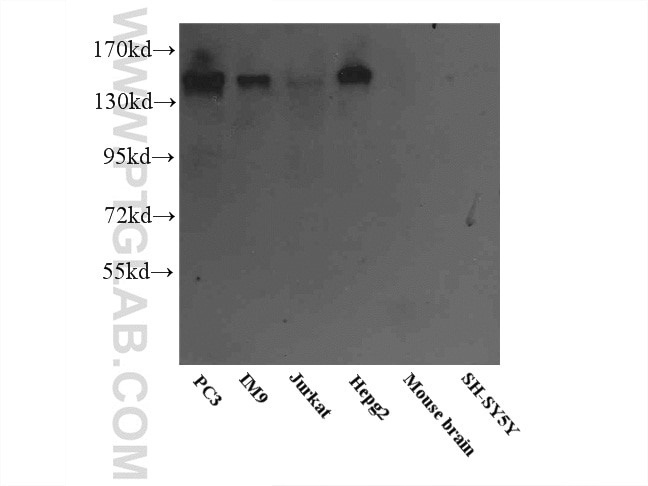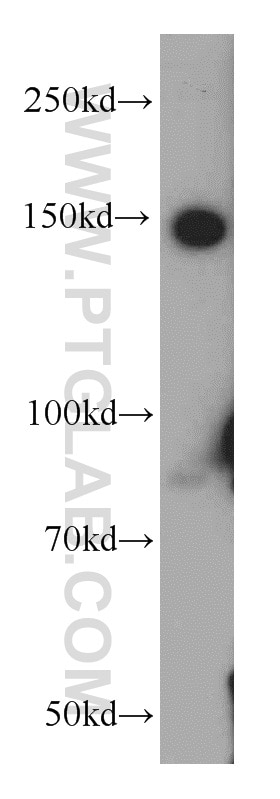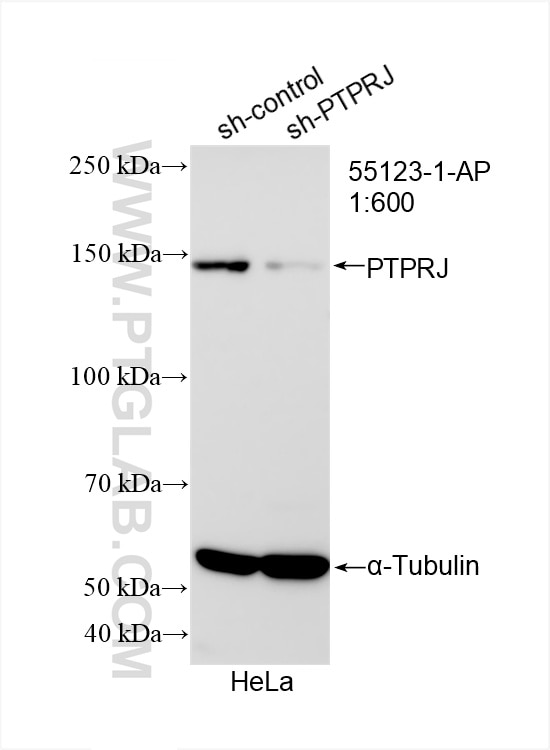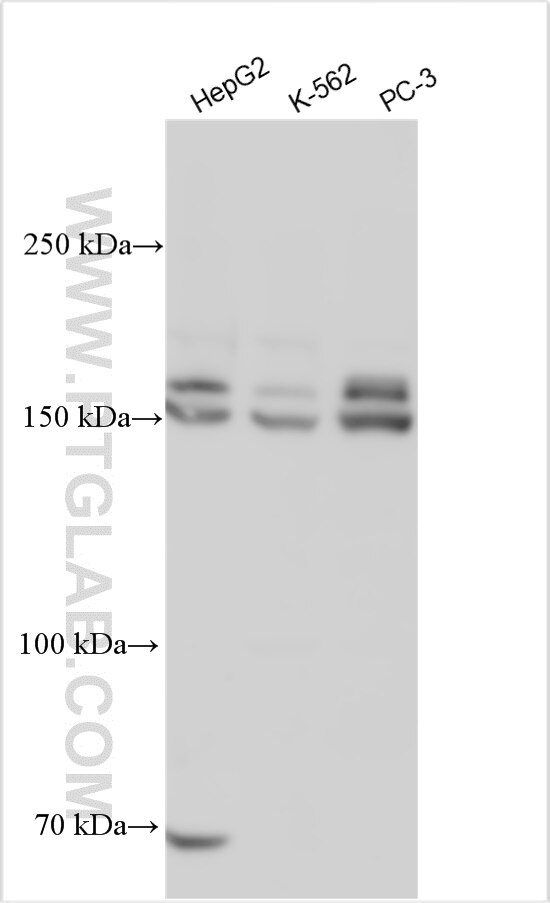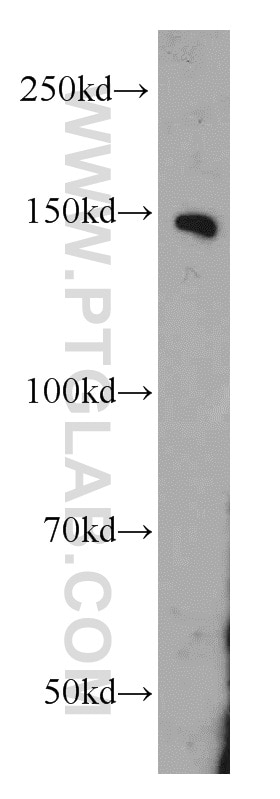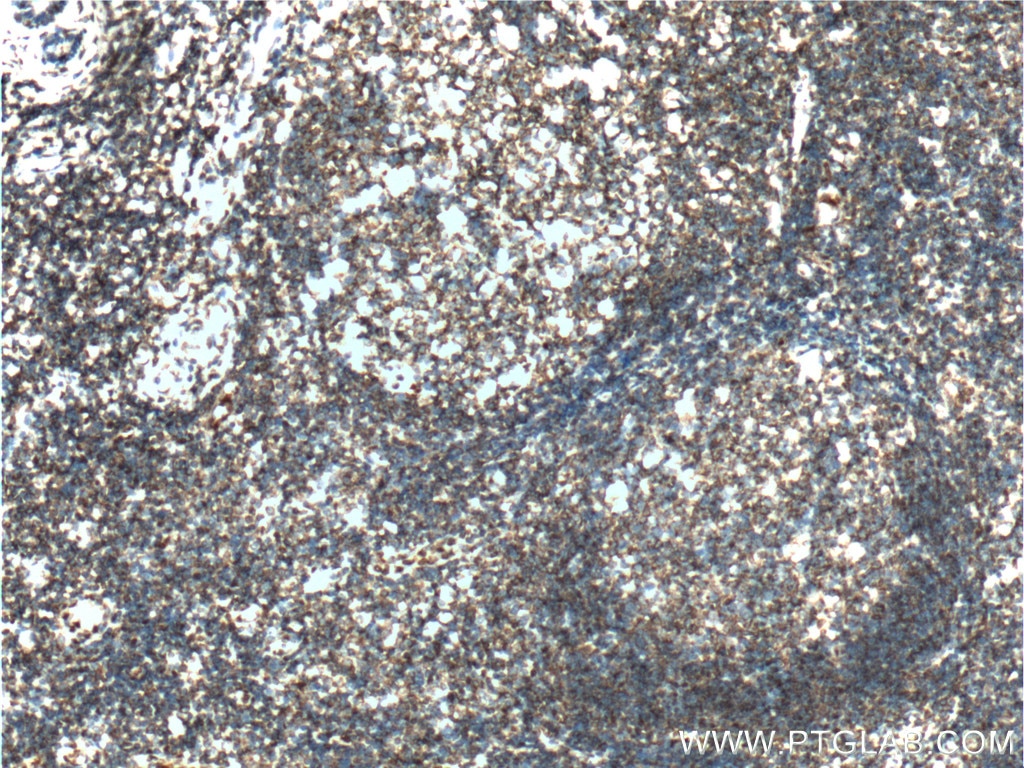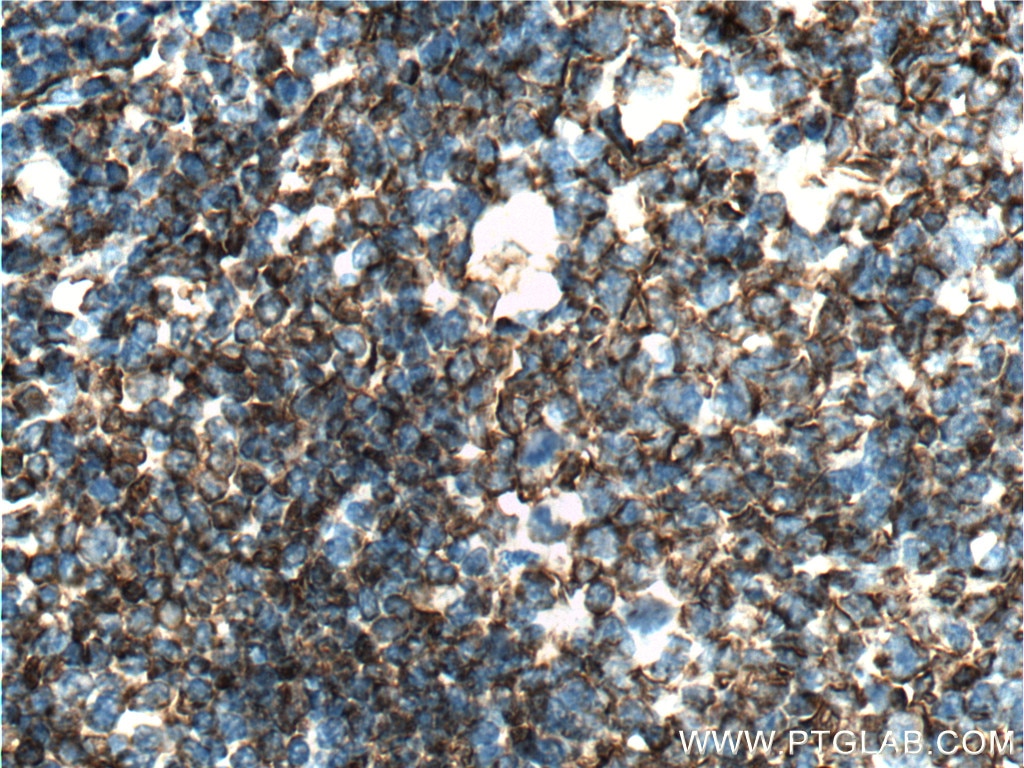Tested Applications
| Positive WB detected in | HepG2 cells, HeLa cells, Jurkat cells, K-562 cells, multi-cells/tissue, PC-3 cells |
| Positive IHC detected in | human tonsillitis tissue Note: suggested antigen retrieval with TE buffer pH 9.0; (*) Alternatively, antigen retrieval may be performed with citrate buffer pH 6.0 |
Recommended dilution
| Application | Dilution |
|---|---|
| Western Blot (WB) | WB : 1:500-1:1000 |
| Immunohistochemistry (IHC) | IHC : 1:100-1:400 |
| It is recommended that this reagent should be titrated in each testing system to obtain optimal results. | |
| Sample-dependent, Check data in validation data gallery. | |
Published Applications
| WB | See 2 publications below |
| IHC | See 2 publications below |
Product Information
55123-1-AP targets PTPRJ in WB, IHC, ELISA applications and shows reactivity with human samples.
| Tested Reactivity | human |
| Cited Reactivity | human |
| Host / Isotype | Rabbit / IgG |
| Class | Polyclonal |
| Type | Antibody |
| Immunogen | Peptide Predict reactive species |
| Full Name | protein tyrosine phosphatase, receptor type, J |
| Calculated Molecular Weight | 146 kDa |
| Observed Molecular Weight | 146-170 kDa |
| GenBank Accession Number | NM_002843 |
| Gene Symbol | PTPRJ |
| Gene ID (NCBI) | 5795 |
| RRID | AB_10859259 |
| Conjugate | Unconjugated |
| Form | Liquid |
| Purification Method | Antigen affinity purification |
| UNIPROT ID | Q12913 |
| Storage Buffer | PBS with 0.02% sodium azide and 50% glycerol, pH 7.3. |
| Storage Conditions | Store at -20°C. Stable for one year after shipment. Aliquoting is unnecessary for -20oC storage. 20ul sizes contain 0.1% BSA. |
Background Information
PTPRJ, also named as CD148 and DEP1, belongs to the protein-tyrosine phosphatase family and Receptor class 3 subfamily. PTPs are known to be signaling molecules that regulate a variety of cellular processes including cell growth, differentiation, mitotic cycle, and oncogenic transformation. PTPRJ may contribute to the mechanism of contact inhibition of cell growth. PTPRJ is present in all hematopoietic lineages, and was shown to negatively regulate T cell receptor signaling possibly through interfering with the phosphorylation of Phospholipase C Gamma 1 (PLCG1) and Linker for Activation of T Cells (LAT). It was also found to dephosphorylate PDGF beta receptor, and may be involved in UV-induced signal transduction. The antibody is specific to PTPRJ.
Protocols
| Product Specific Protocols | |
|---|---|
| WB protocol for PTPRJ antibody 55123-1-AP | Download protocol |
| IHC protocol for PTPRJ antibody 55123-1-AP | Download protocol |
| Standard Protocols | |
|---|---|
| Click here to view our Standard Protocols |
Publications
| Species | Application | Title |
|---|---|---|
J Pathol The protein tyrosine phosphatase receptor type J is regulated by the pVHL-HIF axis in clear cell renal cell carcinoma. | ||
Onco Targets Ther Comprehensive Analysis of Aberrantly Expressed Competitive Endogenous RNA Network and Identification of Prognostic Biomarkers in Pheochromocytoma and Paraganglioma. | ||
Clin Proteomics iTRAQ plasma proteomics analysis for candidate biomarkers of type 2 incipient diabetic nephropathy. | ||
Theranostics Comprehensive multi-omics analysis of pyroptosis for optimizing neoadjuvant immunotherapy in patients with gastric cancer |
